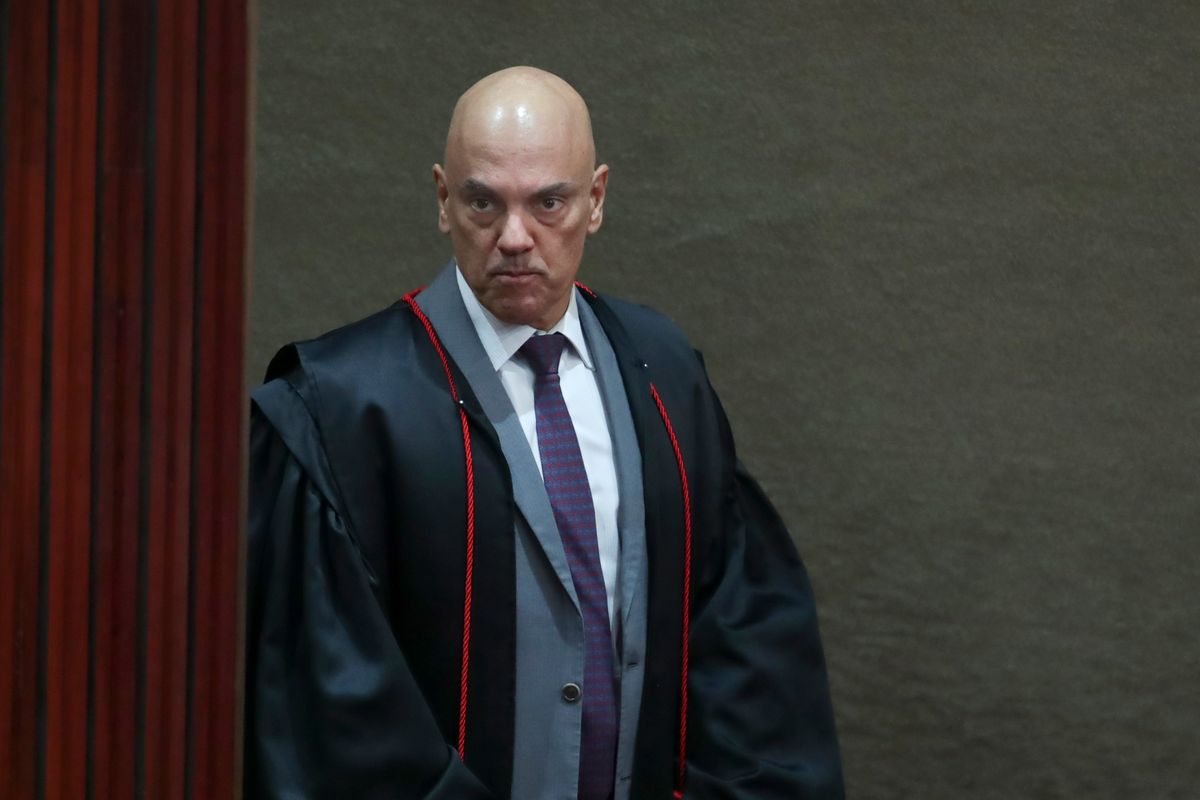The United States, led by former President Donald Trump, imposed a 50% duty on certain imports from Brazil, while also enacting sanctions against a Brazilian judge associated with a prominent case related to former President Jair Bolsonaro. These actions, revealed amid rising tensions, indicated a significant change in diplomatic and economic ties between Washington and Brasília.
The imposition of the hefty tariffs, which affect key Brazilian exports, marked one of the most severe trade actions against the South American nation in recent years. U.S. officials cited concerns over Brazil’s economic policies, trade imbalances, and political developments as justification for the move. While the specific products affected were not immediately detailed, analysts believe the tariffs target industries where Brazil has strong export positions, including metals, agricultural goods, and industrial commodities.
The announcement triggered instant anxiety among Brazilian authorities and industry representatives, who cautioned about the financial repercussions these tariffs might have on trade relations between the two nations. Brazil has traditionally depended on entry to the U.S. market for industries such as steel and soybeans, and the 50% tariff could greatly interfere with trade dynamics, damage exporters, and stress the wider economic connection between the nations.
Además de las sanciones comerciales, el gobierno de Trump adoptó la inusual medida de sancionar a un juez federal brasileño involucrado en una investigación jurídica relacionada con la presidencia de Bolsonaro. De acuerdo con las autoridades estadounidenses, el juez fue acusado de facilitar decisiones judiciales que supuestamente obstaculizaban procesos democráticos o protegían a figuras clave de la responsabilidad legal. Aunque la administración no divulgó todos los detalles, afirmó que las sanciones se basaron en violaciones de los derechos humanos y en socavar el estado de derecho.
The twin measures — concerning economy and law — were seen by numerous individuals in Brazil as a forceful and politically influenced intervention. Opponents within Brazil asserted that the U.S. was using its economic strength to wield political clout, especially during a period when Brazil’s judicial system faced both national and global examination. Some perceived the penalties as a wider reflection on democratic management and responsibility in Brazil after Bolsonaro’s leadership.
In response, the Brazilian government condemned the measures as unilateral and unjustified. Officials called for urgent diplomatic dialogue and warned that retaliatory trade measures could be considered if the situation did not improve. Brazil’s foreign ministry expressed “deep disappointment” at the sanctions and tariffs, framing them as harmful to bilateral cooperation and inconsistent with the principles of international law.
Trade experts noted that the move diverged from traditional diplomatic norms, especially given the close political alignment that once existed between Trump and Bolsonaro. During Bolsonaro’s presidency, the two leaders frequently expressed mutual admiration and aligned on various global policy issues, including environmental deregulation, skepticism of multilateral organizations, and nationalist economic policies.
Nonetheless, the aftermath of the elections in both nations brought new dynamics. With Bolsonaro dealing with legal issues in Brazil and Trump entangled in political controversies in the United States, their legal and political weaknesses seemed to impact bilateral ties. In this situation, the sanctions and tariffs might have represented extensive geopolitical strategies instead of being strictly trade-centric.
The targeting of a member of Brazil’s judiciary also raised alarms among international observers, who questioned the precedent such an action could set. Typically, economic sanctions are directed at government officials, security forces, or corporate entities — not individual judges. Legal experts warned that politicizing judicial proceedings through foreign sanctions could erode confidence in independent legal systems and fuel nationalist backlash.
From a policy standpoint, the tariff decision was justified by the Trump administration as a necessary step to address what it considered unfair trade practices. Officials pointed to currency manipulation concerns, trade deficits, and the need to protect U.S. manufacturers as reasons for the 50% rate hike. However, many economists argued that such a steep tariff risked igniting a broader trade conflict, with potential repercussions across Latin America and beyond.
The business community in both nations responded with apprehension. U.S. importers dependent on Brazilian raw materials or agricultural goods feared price hikes and supply chain disruptions. Brazilian exporters, meanwhile, faced immediate uncertainty as they assessed how the new duties would affect their competitive position in the U.S. market.
Diplomatic initiatives to mitigate the situation were promptly launched. Brazilian diplomats aimed to communicate with officials in Washington to understand the extent of the sanctions and explore ways to lessen or annul the tariffs. Additionally, U.S. legislators, especially those representing agricultural and manufacturing communities, urged a reevaluation of the actions and their potential long-term effects on American employment and international competitiveness.
As the situation unfolded, it turned into a focal point in debates concerning the boundaries of executive authority in trade policy. Trump’s application of tariffs as a means to achieve wider foreign policy goals wasn’t unprecedented, but the blend of trade restrictions and legal targeting marked an intensification that worried both supporters and detractors.
Over time, the incident highlighted the vulnerability of global partnerships formed on ideological connections instead of enduring institutional bases. The bond between Brazil and the U.S., initially supported by strong personal ties between the leaders, was now undergoing adjustments influenced by evolving political conditions and new legal situations.
Whether future administrations in either country will reverse course or build on these measures remains uncertain. What is clear, however, is that this moment marked a turning point in U.S.-Brazil relations, highlighting the complex interplay between politics, trade, and justice on the global stage.

